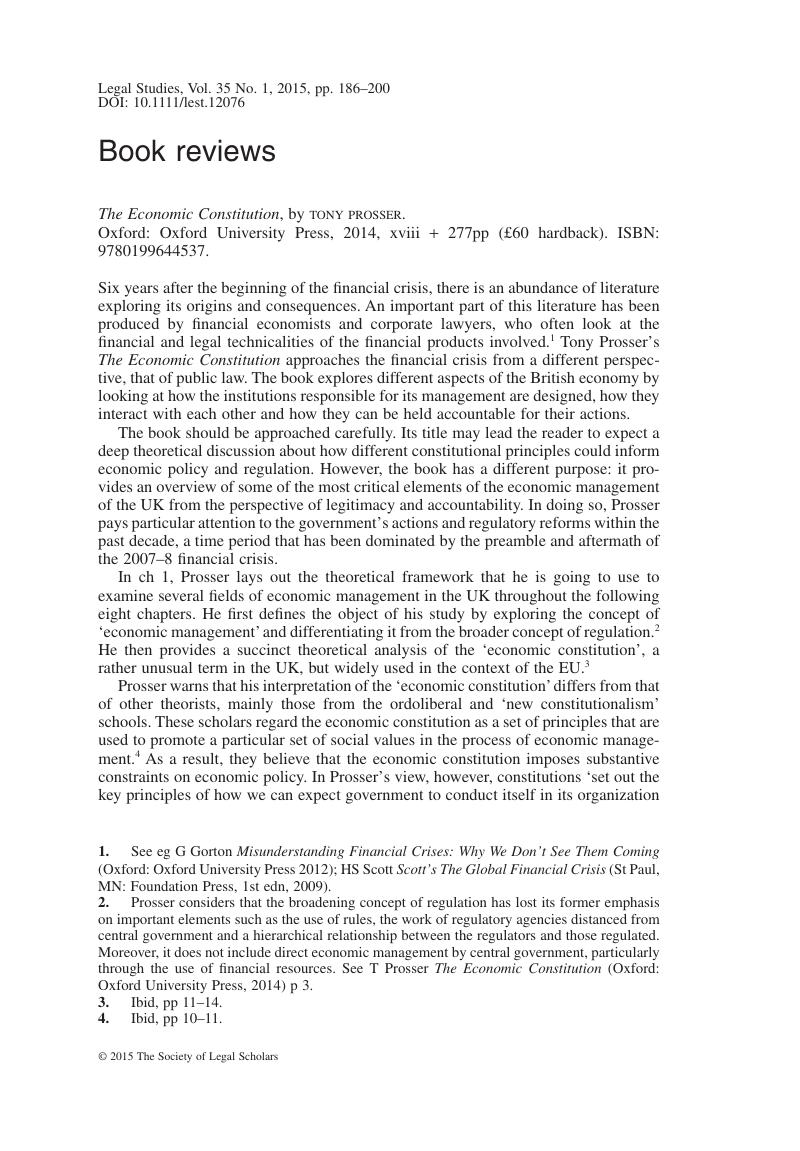Article contents
The Economic Constitution, by Tony Prosser. Oxford: Oxford University Press, 2014, xviii + 277pp (£60 hardback). ISBN: 9780199644537.
Published online by Cambridge University Press: 02 January 2018
Abstract

- Type
- Book Review
- Information
- Copyright
- Copyright © Society of Legal Scholars 2015
References
1. See eg Gorton, G Misunderstanding Financial Crises: Why We Don't See Them Coming (Oxford: Oxford University Press 2012);Google Scholar Scott, HS Scott's The Global Financial Crisis (St Paul, MN: Foundation Press, 1st edn, 2009).Google Scholar
2. Prosser considers that the broadening concept of regulation has lost its former emphasis on important elements such as the use of rules, the work of regulatory agencies distanced from central government and a hierarchical relationship between the regulators and those regulated. Moreover, it does not include direct economic management by central government, particularly through the use of financial resources. See Prosser, T The Economic Constitution (Oxford: Oxford University Press, 2014) p 3.CrossRefGoogle Scholar
3. Ibid, pp 11–14.
4. Ibid, pp 10–11.
5. Ibid, p 8.
6. Ibid, p 2.
7. Ibid, p 109.
8. Ibid, pp 124–125.
9. Ibid, p 184.
10. Ibid, p 241.
11. One of the arguments he presents to support his affirmation is the ‘rapid, far-reaching and costly responses by national governments’ during the financial crisis. Ibid.
12. Ibid, p 246.
13. Ibid, pp 250–253.
14. Prosser himself identifies some of these questions in the Preamble of the book, eg a full theoretical development of the constitutional and regulatory approach and a comparative analysis of economic constitutions in other jurisdictions. Ibid, p vi.
15. The absence of such a reflective exercise is particularly acute in the context of the institutional interrelations in the tripartite system between the Bank of England, HM Treasury and the now extinct FSA during the financial crisis. The reader is left wondering whether the new twin peaks model will provide a more effective protection. Ibid, pp 22–36.
16. Ibid, p vi.
- 2
- Cited by




